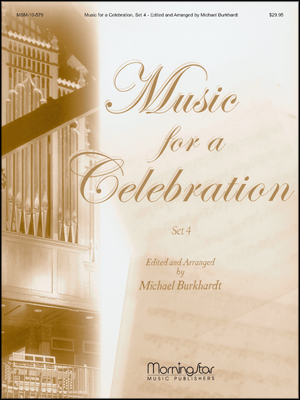- |
User Links
A little child the Savior came

A little child the Savior came
Author: William Robertson (1861)Published in 54 hymnals
Printable scores: PDF, MusicXMLAudio files: MIDI
Representative Text
1 A little child the Saviour came,
the mighty God was still his name,
and angels worshipped as he lay
the seeming infant of a day.
2 He who, a little child, began
to show the world God's loving plan,
proclaims from heaven the message free,
'Let little children come to me.'
3 We bring them, Lord, and with the sign
of sprinkled water name them thine:
their souls with saving grace endow;
baptize them with thy Spirit now.
4 O give thine angels charge, good Lord,
them safely in thy way to guard;
thy blessing on their lives command,
and write their names upon thy hand.
5 O thou, who by an infant's tongue
dost hear thy perfect glory sung,
may these, with all the heavenly host,
praise Father, Son, and Holy Ghost.
Source: Hymns of Glory, Songs of Praise #631
Author: William Robertson
Robertson, William, M.A., eldest son of the Rev. John Robertson, D.D., of Cambuslang, Lanarkshire, was born at Cambuslang, July 15, 1820. He studied and graduated M.A. at the University of Glasgow. In 1843 he became parish minister of Monzievaird, Perthshire, where he died June 9, 1864. He was appointed a member of the Hymnal Committee of the Established Church in 1852, 1853, and 1857, and contributed 2 hymns to their Hymns for Public Worship, 1861, since included in their Scottish Hymnal, 1869, which have attained considerable popularity, viz., "A little child the Saviour came" (Christmas), and a version of the Te Deum, which begins, "Thee God we praise, Thee Lord confess." [Rev. James Mearns, M.A.] --John Julian, Dictionary of Hymnolo… Go to person page >Text Information
| First Line: | A little child the Savior came |
| Author: | William Robertson (1861) |
| Meter: | 8.8.8.8 |
| Language: | English |
| Copyright: | Public Domain |
Notes
A little child the Saviour came. W. Robertson. [Holy Baptism.] Contributed to the Scottish Established Church Hymns for Public Worship, 1861, and republished in their Scottish Hymnal, 1870, No. 181, in 5 stanzas of 4 lines. In the American collections it has attained to a more extensive use than in those in Great Britain, but in every case, as in Hatfield's Church Hymn Book., 1872, the Hymns & Songs of Praise, 1874, the Presbyterian Hymnal, Phil., 1874, and others, it is attributed in error to the elder W. Robertson, who was associated with the Scottish Translations and Paraphrases of 1745.
Tune
ANGELUS (Joseph)ALSTONE
LES COMANDEMENS DE DIEU
LES COMMANDEMENS (French for "the commandments"), a rich and graceful tune in the Hypo-Ionian mode (major), was used in the Genevan Psalter (1547) for the Decalogue and for Psalm 140, and later in British psalters and in the Lutheran tradition. The first setting in the Psalter Hymnal derives from Cl…


 My Starred Hymns
My Starred Hymns





